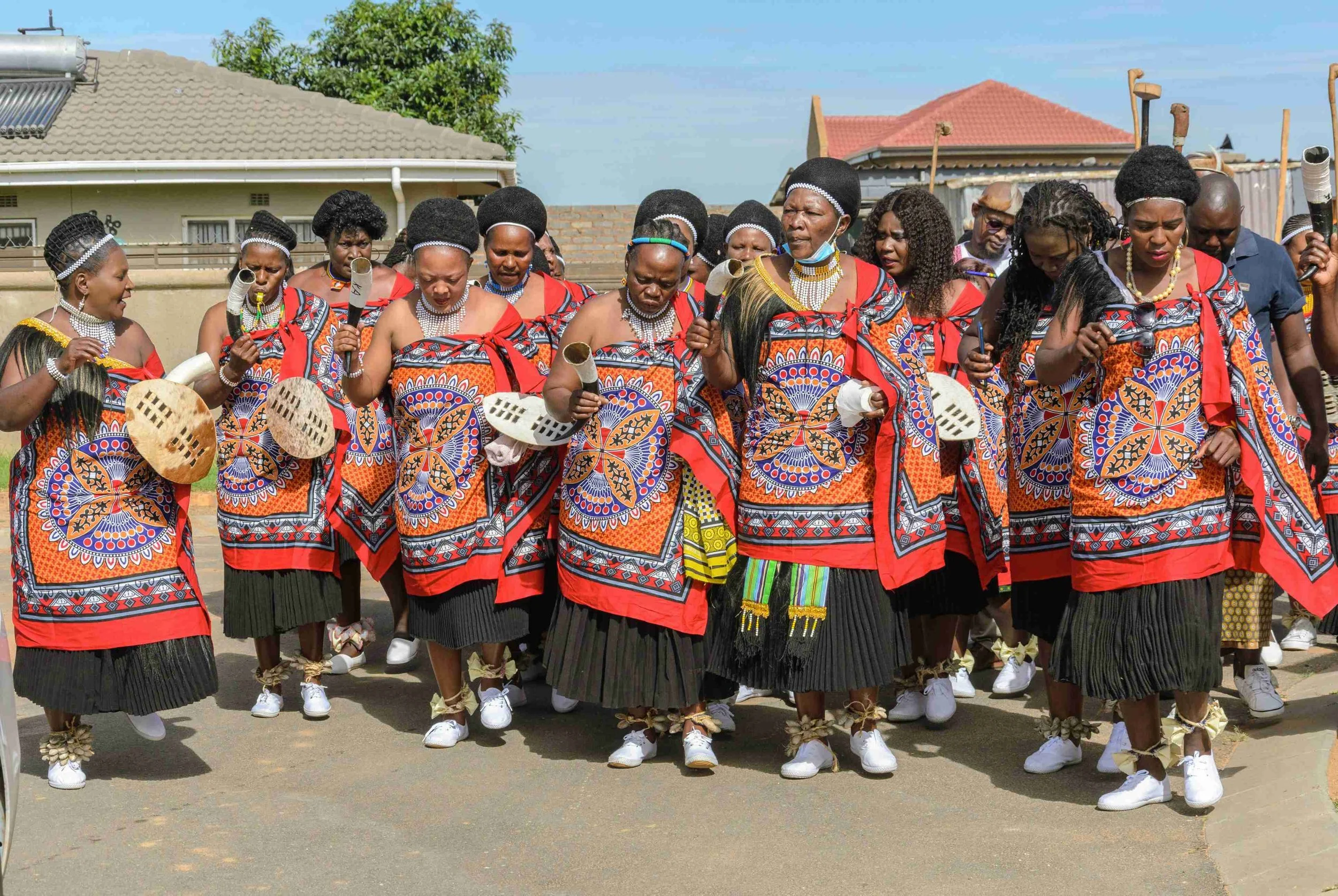10 Benin Travel Tips: Your Ultimate Travel Guide For A Trip To Benin
What if I told you your best adventure yet would be a uniquely curated trip to Benin? From my experience as a tour guide, I can tell you that some of the most unforgettable travel experiences are the ones that push travelers outside their usual tourist box.
Dear adventurer, if stepping outside the usual tourist bubble is your vibe, let me introduce you to Benin, a gem that's often overlooked but absolutely shouldn't be.
Consider this your friendly guide to planning an unforgettable trip to Benin and to making the most out of your journey. In this blog post, we delve into your ultimate travel guide for a trip to Benin.
Why Take a Trip To Benin?
Benin is a country rich in history, vibrant spirituality, stunning natural beauty, and a warmth from its people that will stay with you long after you've returned home. It's the birthplace of Vodun.
So traveling to Benin isn’t just a trip, it’s an immersion. Benin offers an authentic journey that will challenge your perceptions and fill your memory bank with incredible stories.
With a spotlight on Benin out of the way, let’s consider the tips.
1. Visa & Vaccinations
For U.S. citizens, a visa is required to enter Benin. The good news is that Benin offers an e-visa option, which simplifies the process considerably. You can apply online, receive your visa within a few business days for single or multiple entries.
A Yellow Fever vaccination certificate is mandatory for entry into Benin. You'll likely be asked for it upon arrival, and without it, you could face denied entry or even vaccination on the spot.
Malaria is prevalent throughout Benin, so discuss antimalarial medication with your healthcare provider.
2. When to Go
Your best bet for a comfortable trip to Benin is during the dry season. The reason is, Benin has a tropical climate, meaning it's generally warm and humid.
November to March is an optimal window. These months are generally cooler and have less humidity, making exploration more pleasant. This period also coincides with some fantastic festivals.
If you're interested in the vibrant Vodun culture, mark your calendar for January 10th. This is National Vodun Day in Ouidah, an unforgettable celebration of the religion. December also often sees the International Festival of Dahomean Cultures, highlighting Benin's diverse heritage.
April to October is the wet season. Expect higher humidity and frequent, heavy rainfall. Some rural roads can become impassable, and certain activities might be disrupted. However, prices of services might be lower, and the landscapes are incredibly lush.
3. Money Matters
Let's talk cash, because while you're ready for adventure, your wallet needs to be too!
West African CFA Franc (XOF) is the local currency. While some larger hotels might take USD, you'll primarily be using CFA Francs. As of mid-2025, roughly 1 USD equals about 615-620 CFA Francs. Always check the current rate before you travel.
While ATMs are available in major cities like Cotonou and Porto-Novo, cash rules here. Many smaller businesses, street vendors, and public transport options are cash-only. Small bills are your best friend.
Inform your bank and credit card companies about your travel plans to Benin to avoid any security holds on your cards.
4. Getting Around Benin
Transportation in Benin is an adventure in itself. Motorcycle taxis are called Zémidjans in Benin. These are the lifeblood of urban transport in cities like Cotonou and Lomé. They're fast, affordable, and a cool way to zip through traffic. Negotiate the fare upfront.
In Cotonou and other major cities, apps like Bolt offer a convenient option with set prices. This can be a good choice, especially at night. For inter-city travel, shared cars or minivans are a common and affordable choice. They depart when full, so be prepared for a wait and a potentially snug ride.
For longer hauls, look for the State Transport Corporation (STC) buses. They're generally more reliable and comfortable. A car with a driver is also a good option if all the others are not your forte.
5. Cultural Etiquette
Benin is a place of deep respect and vibrant traditions. Embracing local customs will significantly enhance your experience.
Always greet people. A simple "Bonjour" (French, the official language) or "Kedu" (Fon, a common local language) followed by a handshake is the norm.
Also, just like other West African countries, the Right-Hand Rule is real. Always use your right hand for handshakes, giving and receiving items, and eating. The left hand is culturally considered unclean. Forgetting this can be perceived as highly disrespectful.
While Cotonou is modern, generally, modest dressing is appreciated. When photographing people, especially in rural areas or during ceremonies, always ask for permission first. Respect their answer if they decline.
Things don't always move at a Western pace. Be prepared for delays, relaxed schedules, and take it all in stride.
Bargaining is part of the Fun. In markets, haggling is expected and part of the cultural experience. Do it with a smile and good humor.
6. Stay Connected
Don't rely solely on hotel Wi-Fi on your trip to Benin. Getting a local SIM card is easy and affordable.
Major Providers: MTN Benin and Moov Africa are the main players. MTN generally offers the widest and most reliable coverage.
Where to Buy: You can often purchase a SIM card right at the airport or at official provider stores in major cities. You'll usually need your passport for registration.
Cost & Data: Data packages are very reasonably priced, allowing you to stay connected for maps, communication (WhatsApp is widely used), and sharing your adventures.
eSIM Option: Some providers might offer eSIMs, which can be a convenient option if your phone supports it, allowing you to keep your home SIM active.
8. Beninese Foods
Beninese cuisine is hearty, flavorful, and diverse. You'll encounter the staple starches, variations of corn dough (akassa, amiwo, pâte), often dyed red with tomato, or pounded yam (fufu) served with rich, often spicy, sauces.
Expect sauces made with peanuts, palm oil, tomatoes, okra, various leafy greens, and often fish (fresh or smoked) or chicken. Given Benin’s coastline, enjoy delicious grilled fish served with a spicy chili sauce.
Other meals to explore are: Wagasi, a unique, firm cow's milk cheese, often fried. Yovo Doko, a popular street food, is sweet, fried flour fritters, perfect for a snack. Sodabi is a potent local palm wine liquor. Try it, but responsibly!
Hey, be adventurous. Don't be afraid to try street food; however, look out for freshly cooked ones.
7. Accommodation: Comfort for Every Coin
Benin has a growing range of accommodations to suit different budgets.
Budget-Friendly (Hostels/Guesthouses): You can find clean, basic guesthouses and a few hostels in major cities for under $50/night. These offer a great way to meet other travelers.
Mid-Range (Hotels/Boutique Stays): Expect comfortable rooms, often with AC, private bathrooms, and sometimes a pool, ranging from $50-$150/night. You'll find good options in Cotonou, Porto-Novo, and around the tourist circuit.
Luxury (High-End Hotels/Resorts): In Cotonou, there are a few higher-end hotels with all the amenities, including international chains, offering more luxurious stays for $150+/night.
Unique Stays: Don't miss opportunities for unique experiences like eco-lodges near national parks or community-run guesthouses in rural areas.women economically.
9. Must-See Destinations
Ouidah
The spiritual heart of Vodun and a pivotal site for understanding the transatlantic slave trade (Door of No Return, Temple of Pythons, Sacred Forest, History Museum). This is a must-visit for its profound historical and spiritual significance.
Abomey
Explore the UNESCO-listed Royal Palaces of Abomey, once the center of the powerful Dahomey Kingdom. Learn about the legendary Dahomey Amazons and the kingdom's fascinating (and sometimes brutal) history.
Ganvié
The "Venice of Africa"! This incredible stilt village on Lake Nokoué is a testament to human ingenuity and resilience. A peaceful pirogue ride through the floating community is unforgettable.
Cotonou
The bustling economic capital. Dive into the sensory overload of Dantokpa Market, explore the artisan centers, and soak in the city's dynamic energy.
Porto-Novo
Benin's official capital, offering a more relaxed atmosphere and a fascinating Afro-Brazilian architectural heritage. Visit the Great Mosque and the Ethnographic Museum.
Pendjari National Park
For wildlife enthusiasts! This park offers the chance to spot elephants, lions, and other West African wildlife. Note: Always check current travel advisories for northern Benin, as security situations can fluctuate.
Natitingou & Tata Somba Houses
In the north, explore the unique, fortified mud-brick Tata Somba houses of the Batammariba people – an architectural and cultural marvel.
10. Safety Smart
Benin is generally welcoming, but like any unfamiliar destination, common sense and awareness are key.
Ensure to stay informed. Check your government's (e.g., US State Department) travel advisories for Benin before and during your trip.
Be aware of your surroundings, especially in crowded markets or at night in urban areas. Protect Valuables, keep expensive items out of sight. Use hotel safes. Don't flash large amounts of cash. If you feel uncomfortable or need help, seek out official police, hotel staff, or your tour guide.
Conclusion
Benin isn't a country you simply "visit." It's a country you experience. It will challenge you, surprise you, and undoubtedly leave a profound impression, so embrace the unexpected.
Be open, be respectful, and be ready to learn. The smiles, the stories, and the sheer authenticity of Benin will weave themselves into the fabric of your travel memories, creating an adventure truly beyond the brochure.
Take that leap and plan your trip to Benin. Your ultimate West African journey awaits.
Download my free travel guide to navigating Accra- Ghana from hotels to stay at, restaurants to try out, how to stay safe when visiting and nightlife recommendations for my fellow night owls who would love to go dancing.
Hello, fellow adventurers! I'm Rashida, your not-so-typical travel guide. Join me for laughs, mishaps, and perhaps a questionable decision or two (because let's face it, those always make for the best stories). Learn More










